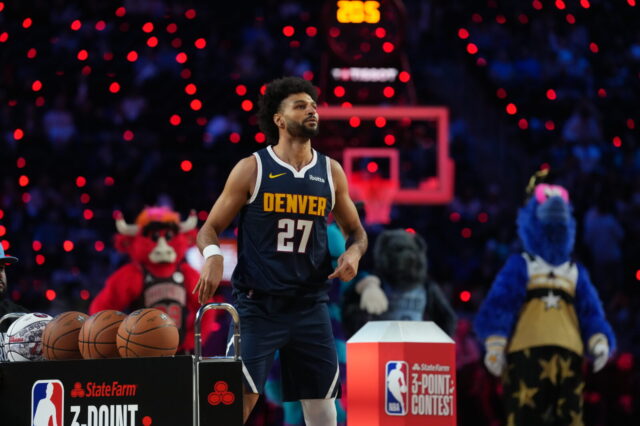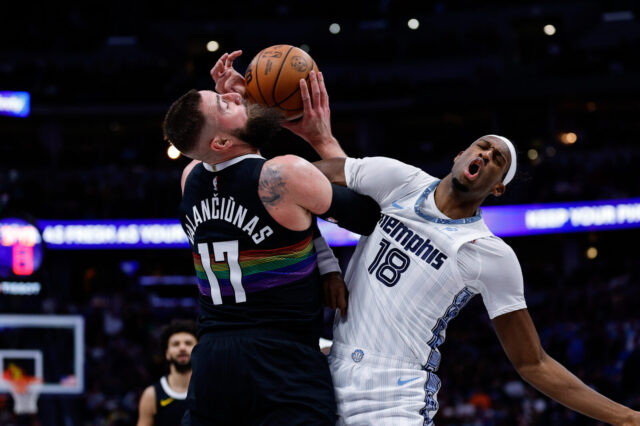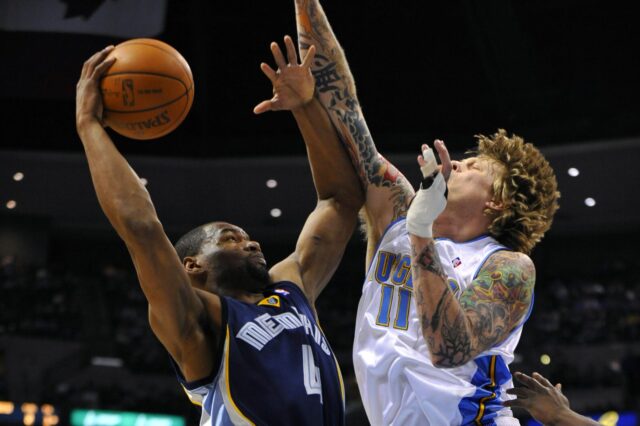In response to the National Basketball Players Association rejecting the owners' latest collective bargaining proposal – effectively ending any shot at a 72-game season and possibly killing the 2011-12 NBA season altogether – NBA commissioner David Stern remarked that "…we're about to go into the nuclear winter of the NBA." In other words, I'm going to save thousands of dollars on would-have-bought tickets and countless hours of would-be basketball watching. But by no means am I happy about this.
Clearly, reality is yet to set in among NBA players.
Of the 450 active NBA players who had the opportunity to salvage the 2011-12 season on Monday, all but about 20 (including NBA luminaries like LeBron James, Dwyane Wade, Kobe Bryant, Kevin Durant, Carmelo Anthony, Steve Nash, Dirk Nowitzki, Dwight Howard, Chris Paul, Derrick Rose, Deron Williams, Tim Duncan, Kevin Garnett, Paul Pierce, Ray Allen, Pau Gasol, Blake Griffin, Kevin Love, Manu Ginobili and Amar’e Stoudemire) are grossly overpaid.
The 20 or so LeBrons and Kobes of the NBA put asses in the seats. They prop up local economies almost single-handedly by being among the biggest draws in sports. Or, in GOP-speak, they are "job creators."
The rest?
Let’s just keep it simple and acknowledge that no one is buying a ticket to watch Al Harrington or Derek Fisher play basketball.
And that's the crux of the issue from my not-so-cheap-seats point of view. The majority of NBA players – who, again, no one is buying a ticket to see play – are Al Harringtons and Derek Fishers. Mediocre players who get unnecessarily showered with millions of dollars thanks to mid-level exemptions, luxury tax thresholds and other loop holes available to NBA general managers that ensure a player is worth whatever the dumbest of 30 owners is willing to pay for said player's services. And even if it means missing paychecks for a long time, these mediocre players – and their overzealous agents – are dictating policy for the players. (Fisher, of course, just happens to the be the NBPA union president.)
Have fun with your 47% of basketball-related income (BRI), fellas. Because that's what you might have to settle for now if the owners follow through on their threat to give you a worse deal after rejecting their latest proposal. A proposal, mind you, that still ensured mediocre players a handsome salary and a handsome share of BRI.
The players will tell us that any future deal is "unacceptable" and/or a "bad deal". And you know what? They're probably right. Whatever comes of this probably will be a "bad deal" for the players.
But they're missing the point.
For the sake of the league, the next collective bargaining agreement should be a bad deal for the players. There shouldn’t be guaranteed contracts that are more than four years long. There shouldn’t be mid-level exemptions north of $5 million. There should be huge penalties for teams going over the salary cap to buy themselves a championship. One bad Kenyon Martin-esque contract shouldn’t ruin a franchise for seven years. Those days must come to an end.
The global economic bubble burst three years ago. It's time for NBA players' economic bubble to burst, too.
But as the owners and players squabble on, those of us who love the NBA suddenly have a lot more time on our hands (and in my case, money, thanks to overpriced NBA season tickets that I won't be buying now).
I've previously written that if the NBA has to lose an entire season to put in the austerity measures necessary to make this great league more competitive, more fair for small markets and bring ticket prices (even somewhat) down, than so be it. And I stand by that statement. But having no professional basketball for the rest of this year, and possibly for the first half of next year, certainly makes me depressed.
Rather than witness the growth of Ty Lawson and Danilo Gallinari, we get to pontificate about what decertification means. Rather than see if Nene, Wilson Chandler or Arron Afflalo return to Denver or not, we get legal updates on ESPN about the NBA’s latest courtroom drama between owners and players. Rather than see if Kenneth Faried and Jordan Hamilton can step into the wake left by the departed Kenyon Martin and J.R. Smith, we get to watch rerun after rerun of “Hardwood Classics” on NBATV.
If there's a silver lining in all of this, I hope NBA owners take the time allotted to them during this latest impasse to put forth a proper revenue-sharing system among themselves. Regardless of how a new collective bargaining agreement is structured with the players, a Major League Baseball-type revenue-sharing system on its own would make the NBA a more competitive league among its 30 franchises. But why do I think that's not going to happen.
Instead, we as fans are on the hook for another month (or more) of legal wrangling, trash talk, double speak and more between owners and players. The players will say they've conceded enough. The owners will lie about how good this deal is for the players. And the 2011-12 season will get reduced to 50 games or none at all.
For the fans, it's "nuclear winter" indeed.


